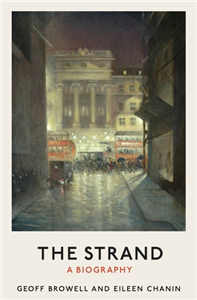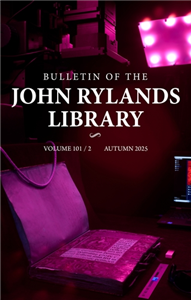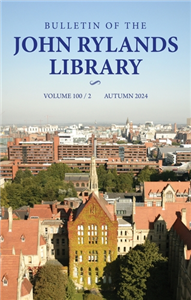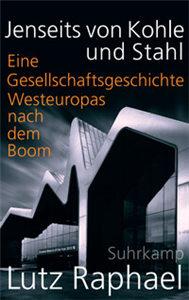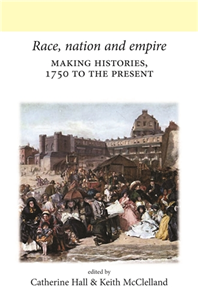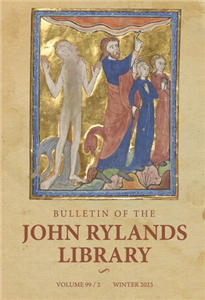Your Search Results
-
Mediendesign Dr. Georg Hauptfeld GmbH Edition Konturen
We are publishing book about the central questions of our culture in politics, philosophy, art and history.
View Rights Portal
-
Promoted ContentThe ArtsSeptember 2016
Marcantonio Raimondi, Raphael and the image multiplied
by Edward H. Wouk, Leslie A. Geddes, Jun Nakamura, Lisa Pon, David Morris, Edward H. Wouk, Henri Zerner, Tatiana Bissolati, Guido Rebecchini, Kathleen Christian, Paul Joannides, Bryony Bartlett-Rawlings, Beverly Louise Brown, Patricia Emison, Catherine Jenkins, Madeleine Viljoen, Sarah Vowles, Jamie Gabbarelli, Peter Black, Barbara Furlotti, Steven Milner, Jenny Spinks, Rheagan E. Martin, Sophie Gordon Cumming, Imogen Harley, Jemima Rose, Heather Garner, Max Weaver, Albert Lindsell, Peter Hayes, Monique Nievas, Holly Smallbone, James Wildgoose
Best known for his partnership with Raphael, the engraver Marcantonio Raimondi (c. 1480-c. 1534) enabled Renaissance artists to disseminate their designs in print, advancing a revolution in visual communication that still reverberates in our own information age. Yet Marcantonio did more than render compositions by famous artists in the novel medium of engraving. The entries and essays in this catalogue, written by a group of international scholars and published to accompany the first exhibition of Marcantonio's work in over three decades, reveal the diversity of Marcantonio's oeuvre and the scope of his innovation as the leading printmaker of the Italian Renaissance. In-depth studies of Marcantonio's engravings expand our knowledge of his collaboration with Raphael, while also probing Marcantonio's creative response to the dynamic humanist culture in his native Bologna and later in Venice and Rome. Contributions also examine engravings by Marcantonio's 'followers' and consider the importance of his work to the history of print collecting.
-
Promoted ContentHumanities & Social SciencesJanuary 2025
The Strand
A biography
by Geoff Browell, Eileen Chanin
The first history of one of London's most extraordinary streets. Running along the Thames's northern shore and spanning three-quarters of a mile from Trafalgar Square to Temple Bar, the Strand has been a witness to London's growth and change from the earliest years of the city's existence. In The Strand: A biography, Geoff Browell and Eileen Chanin uncover the deep history of this remarkable street. Tracing its origins in the Roman era, they reveal how it grew in importance as authority shifted from church to aristocracy, then to commerce, media and law. Over time, everything that mattered converged on the Strand: tradition and ceremony clashed with rebellion and destitution. By 1910, the street was known as the 'centre of the world'. Drawing on remarkable archival discoveries, Browell and Chanin present the most complete and compelling history of the Strand ever written. Filled with surprising, untold stories, The Strand: A biography is a must-read for lovers of one of the world's greatest cities.
-
 Trusted Partner
Humanities & Social SciencesMarch 2017
Trusted Partner
Humanities & Social SciencesMarch 2017The Arctic in the British imagination 1818–1914
by Andrew Thompson, John M. MacKenzie, Rob David
The Arctic region has been the subject of much popular writing. This book considers nineteenth-century representations of the Arctic, and draws upon an extensive range of evidence that will allow the 'widest connections' to emerge from a 'cross-disciplinary analysis' using different methodologies and subject matter. It positions the Arctic alongside more thoroughly investigated theatres of Victorian enterprise. In the nineteenth century, most images were in the form of paintings, travel narratives, lectures given by the explorers themselves and photographs. The book explores key themes in Arctic images which impacted on subsequent representations through text, painting and photography. For much of the nineteenth century, national and regional geographical societies promoted exploration, and rewarded heroic endeavor. The book discusses images of the Arctic which originated in the activities of the geographical societies. The Times provided very low-key reporting of Arctic expeditions, as evidenced by its coverage of the missions of Sir John Franklin and James Clark Ross. However, the illustrated weekly became one of the main sources of popular representations of the Arctic. The book looks at the exhibitions of Arctic peoples, Arctic exploration and Arctic fauna in Britain. Late nineteenth-century exhibitions which featured the Arctic were essentially nostalgic in tone. The Golliwogg's Polar Adventures, published in 1900, drew on adult representations of the Arctic and will have confirmed and reinforced children's perceptions of the region. Text books, board games and novels helped to keep the subject alive among the young.
-
 Trusted Partner
Humanities & Social SciencesDecember 2025
Trusted Partner
Humanities & Social SciencesDecember 2025Bulletin of the John Rylands Library 101/2
Imaging Heritage Science Initiatives at The John Rylands Research Institute and Library
by Stefan Hanß, James Robinson
The John Rylands Library houses one of the finest collections of rare books, manuscripts and archives in the world. The collections span five millennia, have a global reach and cover a wide range of subjects, including art and archaeology; economic, social, political, religious and military history; literature, drama and music; science and medicine; theology and philosophy; travel and exploration. For over a century, the Bulletin of the John Rylands Library has published research that complements the Library's special collections. An electronic edition of this issue is freely available under a Creative Commons (CC BY-NC-ND) licence.
-
 Trusted Partner
March 2024
Trusted Partner
March 2024Charles Dickens
Little People, Big Dreams. Deutsche Ausgabe
by María Isabel Sánchez Vegara, Isobel Ross, Silke Kleemann
Der kleine Charles war eine Leseratte, Bücher verschlang er wie andere ein Stück Brot. Aber seine Familie war bettelarm, und so musste er mit zwölf die Schule verlassen und in der Fabrik arbeiten. Nun erfand er selbst Geschichten, sie handelten von Menschen, die das Beste aus ihrem Leben machten. So wie er, der – inzwischen Angestellter in einer Kanzlei – Fortsetzungsgeschichten für Zeitungen schrieb, die man ihm aus den Händen riss. Noch heute werden seine Geschichten landauf, landab gelesen. Allen voran die Weihnachtsgeschichte, aber auch die Geschichte von Oliver Twist, einem Waisenjungen, der auf der Straße lebte. War es ein bisschen auch seine eigene Geschichte? Little People, Big Dreams erzählt von den beeindruckenden Lebensgeschichten großer Menschen: Jede dieser Persönlichkeiten, ob Philosophin, Forscherin oder Sportler, hat Unvorstellbares erreicht. Dabei begann alles, als sie noch klein waren: mit großen Träumen.
-
 Trusted Partner
Humanities & Social SciencesDecember 2024
Trusted Partner
Humanities & Social SciencesDecember 2024Bulletin of the John Rylands Library 100/2
Higher Learning and Civic Cultures of Knowledge: Manchester 1824–2024
by Stuart Jones
The John Rylands Library houses one of the finest collections of rare books, manuscripts and archives in the world. The collections span five millennia, have a global reach and cover a wide range of subjects, including art and archaeology; economic, social, political, religious and military history; literature, drama and music; science and medicine; theology and philosophy; travel and exploration. For over a century, the Bulletin of the John Rylands Library has published research that complements the Library's special collections.
-
 Trusted Partner
November 2022
Trusted Partner
November 202230 Frauen, die Mut machen
»Falle siebenmal hin und stehe achtmal auf« | Sensationelle Porträts von Frauen
by Ruth Hobday, Geoff Blackwell
Frauen aus Lebensumständen, wie sie nicht unterschiedlicher sein könnten, darunter berühmte und völlig unbekannte, wohlhabende und bitterarme, erzählen aufrichtig und zutiefst berührend, warum sie keine Opfer sein wollen und woher ihr grenzenloser Optimismus kommt. Einfühlsam und authentisch berichten sie von ihren Erlebnissen, von ihrem Lebenswillen, der inneren Kraft und ihrem Mut, immer wieder aufzustehen. Fotografiert von Kieran E. Scott, der zusammen mit dem Herausgeberteam Geoff Blackwell und Ruth Hobday um die Welt reiste, und dem sensationelle Porträts gelungen sind.
-
 Trusted Partner
The ArtsApril 2011
Trusted Partner
The ArtsApril 2011Roy Ward Baker
by Geoff Mayer, Brian McFarlane, Neil Sinyard
This book traces the career of Roy Ward Baker, one of the great survivors of the British film and television industry. He directed the landmark British film Morning Departure (1949), worked at Twentieth Century Fox in Hollywood in the early 1950s where he directed Marilyn Monroe's 'breakthrough' film (Don't Bother to Knock), and followed this with a succession of fine films for Rank, culminating in the best version of the Titanic disaster, A Night to Remember in 1958. Yet within three years he was unable to secure a job in the British film industry and he moved to television series such as The Avengers, The Saint and Minder. Later Baker re-emerged as a major director of science-fiction (Quatermass and the Pit) and horror films (Asylum). Geoff Mayer provides an industrial and aesthetic context in which to understand the interrelationship between a skilled classical director and the transformation of the British film industry in the 1950s. ;
-
 Trusted Partner
The ArtsJanuary 2019
Trusted Partner
The ArtsJanuary 2019Carol Reed
by Peter William Evans
Carol Reed is one of the truly outstanding directors of British cinema, and one whose work is long overdue for reconsideration. This major study ranges over Reed's entire career, combining observation of general trends and patterns with detailed analysis of twenty films, both acknowledged masterpieces and lesser-known works. Evans avoids a simplistic auteurist approach, placing the films in their autobiographical, socio-political and cultural contexts and relating these to the analysis of Reed's art. The critical approach combines psychoanalysis, gender theory, and the analysis of form. Archival research is also relied on to clarify Reed's relations with his creative team, financial backers and others. Films examined include Bank Holiday, A Girl Must Live, Odd Man Out, The Fallen Idol, The Third Man, Night Train to Munich, The Way Ahead, Outcast of the Islands, Trapeze and Oliver!.
-
 Trusted Partner
Trusted Partner
-
 Trusted Partner
May 2019
Trusted Partner
May 2019Jenseits von Kohle und Stahl
Eine Gesellschaftsgeschichte Westeuropas nach dem Boom
by Lutz Raphael
In den siebziger Jahren des 20. Jahrhunderts wurden viele Staaten Westeuropas von einem beispiellosen Strukturwandel erfasst: Die Fabriken der alten Industrien verschwanden, Millionen von Arbeitsplätzen gingen verloren, vormals boomende Städte gerieten in die Krise und neue soziale Fragen bestimmten die politische Agenda. Was aber ist aus dem stolzen Industriebürger geworden – aus seinen Arbeitsplätzen, Karrierewegen und Wohnquartieren? Wie haben sich soziale Rechte und politische Teilhabe von Arbeiterinnen verändert, als der Wettbewerb global, das Management schlank und der Finanzkapitalismus dominant wurde? Welche Ideen und Ideologien begleiteten den Wandel? Am Beispiel der Industriearbeit in Großbritannien, Frankreich und der Bundesrepublik erzählt Lutz Raphael die außerordentlich vielschichtige und spannende Geschichte der westeuropäischen Deindustrialisierung. Sie dauerte drei Jahrzehnte, ging mit einer Steigerung der Produktivität und des Lebensstandards einher, brachte aber auch Niedriglöhne, wachsende Ungleichheiten und eine Krise der demokratischen Repräsentation. Und vielleicht das Entscheidende: Sie wirkt bis heute fort – als Vorgeschichte unserer postindustriellen Gegenwart. Dieses Buch hilft, sie zu verstehen.
-
 Trusted Partner
Humanities & Social SciencesJuly 2010
Trusted Partner
Humanities & Social SciencesJuly 2010Race, nation and empire
Making histories, 1750 to the present
by Catherine Hall, Keith McClelland, Julian Hoppit
The essays in this collection show how histories written in the past, in different political times, dealt with, considered, or avoided and disavowed Britain's imperial role and issues of difference. Ranging from enlightenment historians to the present, these essays consider both individual historians, including such key figures as E. A. Freeman, G. M. Trevelyan and Keith Hancock, and also broader themes such as the relationship between liberalism, race and historiography and how we might re-think British history in the light of trans-national, trans-imperial and cross-cultural analysis. 'Britishness' and what 'British' history is have become major cultural and political issues in our time. But as these essays demonstrate, there is no single national story: race, empire and difference have pulsed through the writing of British history. The contributors include some of the most distinguished historians writing today: C. A. Bayly, Antoinette Burton, Saul Dubow, Geoff Eley, Theodore Koditschek, Marilyn Lake, John M. MacKenzie, Karen O'Brien, Sonya O. Rose, Bill Schwarz, Kathleen Wilson. ;
-
 Trusted Partner
Literature & Literary StudiesApril 2021
Trusted Partner
Literature & Literary StudiesApril 2021John Derricke's The Image of Irelande: with a Discoverie of Woodkarne
by Thomas Herron, Denna Iammarino, Maryclaire Moroney, Joshua Samuel Reid
-
 Trusted Partner
Trusted Partner
-
 Trusted Partner
Humanities & Social SciencesNovember 2023
Trusted Partner
Humanities & Social SciencesNovember 2023Rethinking Norman Italy
Studies in honour of Graham A. Loud
by Joanna Drell, Paul Oldfield
This volume on Norman Italy (southern Italy and Sicily, c. 1000-1200) honours and reflects the pioneering scholarship of Graham A. Loud. An international group of scholars reassesses and recasts the paradigm by which Norman Italy has been conventionally understood, addressing varied subjects across four key themes: historiographies, identities and communities, religion and Church, and conquest. The chapters revise and refine our understanding of Norman Italy in the eleventh and twelfth centuries, demonstrating that it was not just a parochial Norman or Mediterranean entity but also an integral player in the medieval mainstream.
-
 Trusted Partner
Literature & Literary StudiesDecember 2023
Trusted Partner
Literature & Literary StudiesDecember 2023Bulletin of the John Rylands Library 99/2
by Stephen Mossman, Cordelia Warr
The John Rylands Library houses one of the finest collections of rare books, manuscripts and archives in the world. The collections span five millennia and cover a wide range of subjects, including art and archaeology; economic, social, political, religious and military history; literature, drama and music; science and medicine; theology and philosophy; travel and exploration. For over a century, the Bulletin of the John Rylands Library has published research that complements the Library's special collections. The editors invite the submission of articles in these fields and welcome discussion of in-progress projects.
-
 Trusted Partner
Humanities & Social SciencesJune 2021
Trusted Partner
Humanities & Social SciencesJune 2021Rethinking Norman Italy
by Joanna Drell, Paul Oldfield, C. E. Beneš
-
 Trusted Partner
August 2012
Trusted Partner
August 2012Demokratie?
Eine Debatte
by Alain Badiou, Daniel Bensaïd, Giorgio Agamben, Jacques Rancière, Jean-Luc Nancy, Kristin Ross, Slavoj Zizek, Wendy Brown
Zu Beginn des dritten Jahrtausends ist die Situation der Demokratie paradox: Einerseits sind mehr Staaten denn jemals zuvor demokratisch verfaßt, andererseits nehmen die Krisensymptome in den Staaten, die einstmals so etwas wie eine demokratische Avantgarde bildeten, zu: Die Wahlbeteiligung sinkt, schillernde Persönlichkeiten wie Silvio Berlusconi oder Nicolas Sarkozy gewinnen an Bedeutung, Wahlkämpfe geraten zu schalen Marketingkampagnen. Colin Crouch hat all diese Trends in dem Band "Postdemokratie" präzise auf den Punkt gebracht. In diesem Band setzen sich nun acht herausragende politische Denkerinnen und Denker mit dem Zustand und den Perspektiven der am wenigsten schlechten aller Regierungsformen (Winston Churchill) auseinander, die tageszeitung sprach von einem 'Who's who der internationalen linken Theorie'. Der Diskussionsband enthält Beiträge von Giorgio Agamben, Alain Badiou, Daniel Bensaïd, Wendy Brown, Jean-Luc Nancy, Jacques Rancière, Kristin Ross und Slavoj iek.
-
 Trusted Partner
August 2012
Trusted Partner
August 2012Demokratie?
Eine Debatte
by Giorgio Agamben, Alain Badiou, Slavoj Žižek, Jacques Rancière, Jean-Luc Nancy, Wendy Brown, Daniel Bensaïd, Kristin Ross
Zu Beginn des dritten Jahrtausends ist die Situation der Demokratie paradox: Einerseits sind mehr Staaten denn jemals zuvor demokratisch verfaßt, andererseits nehmen die Krisensymptome in den Staaten, die einstmals so etwas wie eine demokratische Avantgarde bildeten, zu: Die Wahlbeteiligung sinkt, schillernde Persönlichkeiten wie Silvio Berlusconi oder Nicolas Sarkozy gewinnen an Bedeutung, Wahlkämpfe geraten zu schalen Marketingkampagnen. Colin Crouch hat all diese Trends in dem Band "Postdemokratie" präzise auf den Punkt gebracht. In diesem Band setzen sich nun acht herausragende politische Denkerinnen und Denker mit dem Zustand und den Perspektiven der am wenigsten schlechten aller Regierungsformen (Winston Churchill) auseinander, die tageszeitung sprach von einem »Who's who der internationalen linken Theorie«. Der Diskussionsband enthält Beiträge von Giorgio Agamben, Alain Badiou, Daniel Bensaïd, Wendy Brown, Jean-Luc Nancy, Jacques Rancière, Kristin Ross und Slavoj Žižek.
-
 Trusted Partner
January 2012
Trusted Partner
January 2012Wolfsblut. Mit einem Vorwort von Richard Adams
Arena Kinderbuch-Klassiker
by London, Jack / Vorwort von Adams, Richard





